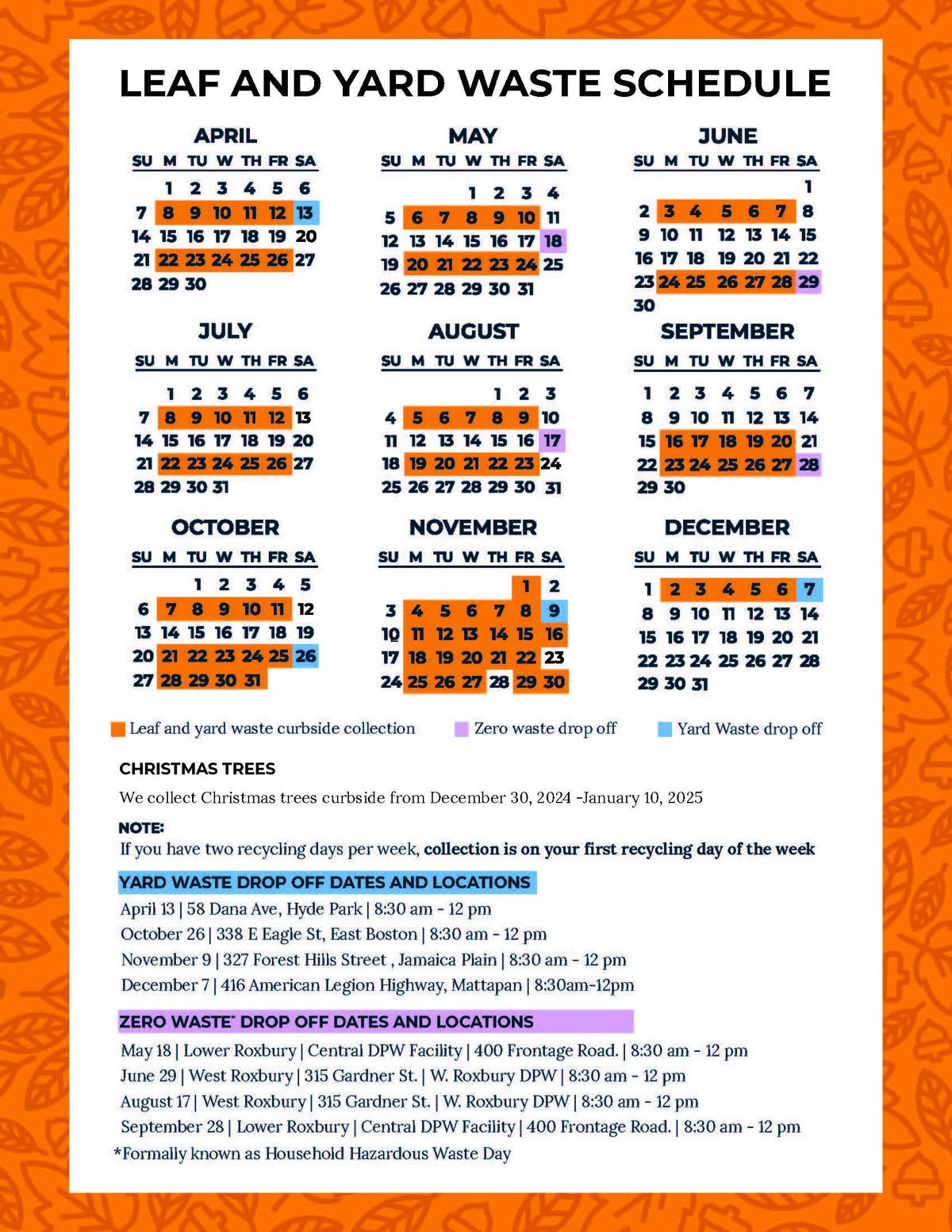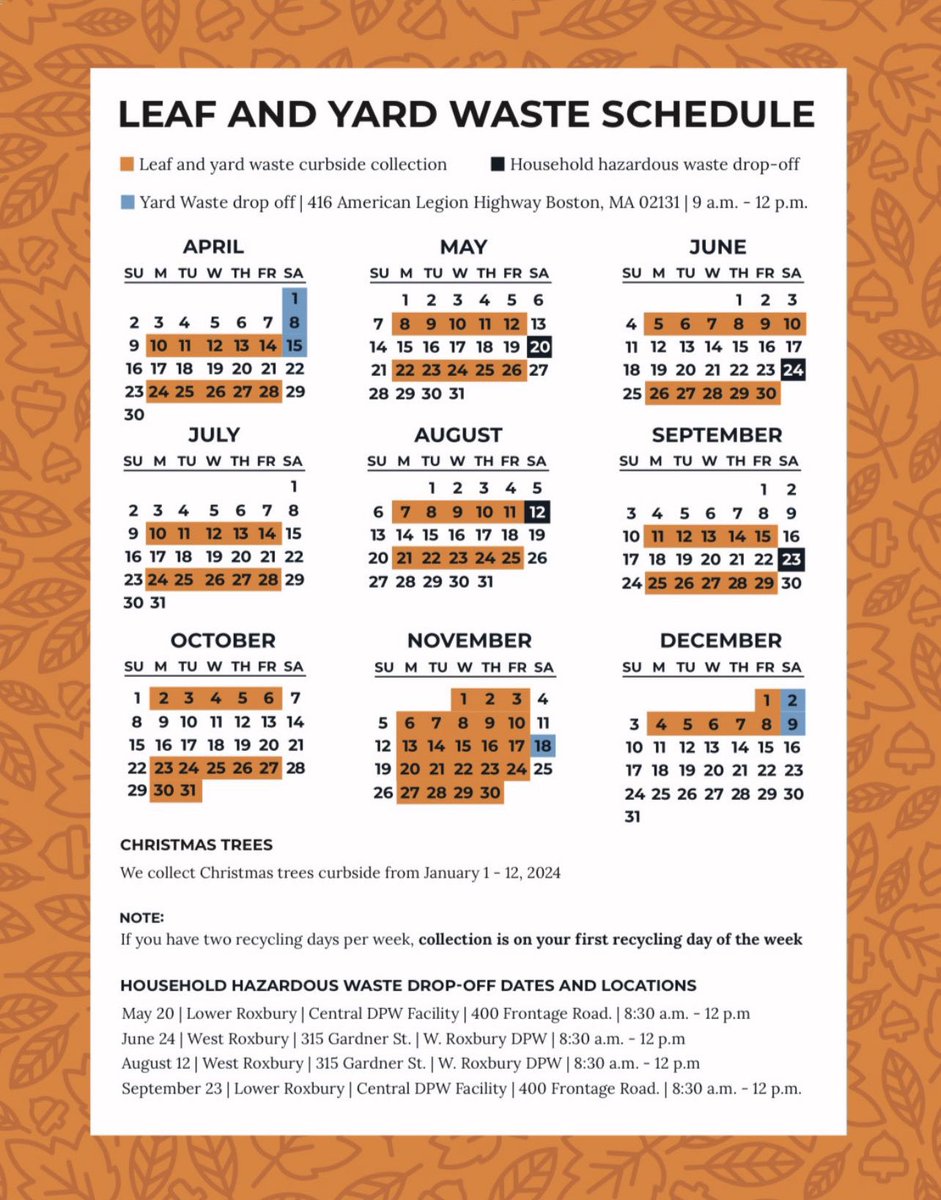When it comes to maintaining a clean and sustainable environment, proper yard waste management is more important than ever. In Boston, where greenery and urban living coexist, understanding how to handle yard waste can make a significant difference. Whether you're a homeowner, a business owner, or just someone passionate about the environment, this guide has everything you need to know about Boston yard waste. So, let's dive right into it and figure out how we can make our city greener!
Living in Boston means embracing its vibrant seasons, from lush spring gardens to colorful autumn leaves. But with all that beauty comes responsibility. Yard waste—think leaves, grass clippings, branches, and other plant materials—can quickly pile up. Proper disposal isn't just about keeping your yard tidy; it's about contributing to a healthier planet.
This article isn't just another piece of fluff. We're diving deep into the ins and outs of Boston yard waste, from collection schedules to composting tips. By the end, you'll have all the tools you need to manage your green waste like a pro. Let's get started!
Read also:Sharks In Destin Fl Today A Dive Into The Depths Of Adventure
Table of Contents
- What is Yard Waste?
- Boston Yard Waste Collection
- Composting Options in Boston
- Recycling Yard Waste
- Best Practices for Managing Yard Waste
- Frequently Asked Questions
- Tips for Businesses Handling Yard Waste
- The Environmental Impact of Proper Yard Waste Management
- Useful Resources for Boston Residents
- Conclusion
What is Yard Waste?
Let's start with the basics. Yard waste refers to any organic material that comes from your yard or garden. This includes leaves, grass clippings, tree branches, weeds, and even flowers. It's basically everything that grows in your yard and eventually needs to be removed. Now, here's the kicker: yard waste doesn't have to end up in a landfill. With the right approach, it can be transformed into something useful.
Types of Yard Waste
Not all yard waste is created equal. Here are some common types you might encounter:
- Leaves – Fallen leaves are one of the most common types of yard waste, especially in autumn.
- Grass Clippings – After mowing your lawn, these little green pieces can pile up fast.
- Tree Branches – Whether from pruning or storms, tree branches are a regular part of yard maintenance.
- Weeds – Those pesky plants that pop up uninvited in your garden.
Knowing what qualifies as yard waste helps you plan better for its disposal. And trust me, Boston has some great programs to help you out with that!
Boston Yard Waste Collection
Now that you know what yard waste is, let's talk about how Boston handles it. The city offers several programs designed to make yard waste collection easy and efficient. Whether you're a resident or a business owner, there's a solution for you.
Residential Collection
For homeowners, Boston provides curbside collection services. You can place your yard waste in biodegradable paper bags or reusable containers labeled "yard waste." Just make sure your pile doesn't exceed the weight limit, which is typically around 50 pounds per container.
Collection days vary by neighborhood, so it's essential to check the schedule. The city usually publishes an updated calendar each year, so keep an eye on their official website or sign up for notifications.
Read also:Olive Amp Sage A Whiff Of Timeless Elegance And Flavor
Commercial Collection
Businesses in Boston have slightly different rules. While they can't rely on curbside collection, there are private companies specializing in yard waste removal. These companies often offer flexible schedules and tailored solutions based on your needs. Plus, many of them partner with the city to ensure proper disposal and recycling.
Composting Options in Boston
Composting is one of the best ways to turn yard waste into something valuable. Instead of sending your leaves and grass clippings to a landfill, you can create rich compost for your garden. Boston makes it easy with various composting programs.
Backyard Composting
If you're into DIY projects, backyard composting might be your thing. All you need is a bin, some organic materials, and a little patience. Over time, your yard waste will break down into nutrient-rich compost that's perfect for growing plants.
Community Composting
Not everyone has the space or time for backyard composting. That's where community composting comes in. Boston has several drop-off locations where residents can bring their yard waste. These sites are managed by local organizations and often offer free or discounted compost to participants.
Recycling Yard Waste
Recycling isn't just for plastic and paper—it applies to yard waste too. Many materials from your yard can be recycled into mulch, compost, or even biofuel. Boston encourages residents and businesses to explore these recycling options.
Benefits of Recycling Yard Waste
Why bother recycling yard waste? Here are a few reasons:
- Reduces landfill waste
- Conserves natural resources
- Creates valuable products
- Supports sustainability efforts
By recycling your yard waste, you're not only helping the environment but also contributing to a circular economy where resources are reused instead of discarded.
Best Practices for Managing Yard Waste
Managing yard waste effectively requires a bit of planning and some good habits. Here are some tips to help you get started:
Minimize Waste
One of the best ways to manage yard waste is to produce less of it. For example, consider mulching your grass clippings instead of bagging them. Mulching returns nutrients to the soil and reduces the need for fertilizers.
Dispose Properly
When it's time to dispose of your yard waste, make sure you follow the rules. Use the right containers, keep your piles organized, and avoid mixing in non-organic materials like plastic or metal.
Stay Informed
Keep up with the latest updates from the city. Programs and regulations can change, so it's important to stay informed. Sign up for newsletters, follow local environmental groups, and attend community meetings.
Frequently Asked Questions
Got questions about Boston yard waste? You're not alone. Here are some of the most common queries we hear:
Can I Put Yard Waste in Regular Trash?
Nope! Yard waste should never go in your regular trash. Not only is it against the rules in Boston, but it also contributes to landfill waste. Always use the designated yard waste collection services or composting options.
What Happens to My Yard Waste After Collection?
Once collected, your yard waste is taken to a processing facility where it's turned into compost, mulch, or other useful products. These materials are then distributed to farmers, gardeners, and landscaping companies.
Tips for Businesses Handling Yard Waste
Businesses in Boston have unique challenges when it comes to yard waste management. Here are a few tips to help them navigate the process:
Hire a Reputable Contractor
Working with a trusted contractor can simplify things. Look for companies with experience in commercial yard waste removal and ensure they follow all city regulations.
Implement a Green Policy
Encourage sustainability within your business by adopting a green policy. This could include composting, recycling, and reducing waste overall. Your employees and customers will appreciate your commitment to the environment.
The Environmental Impact of Proper Yard Waste Management
Managing yard waste properly has a profound impact on the environment. By reducing landfill waste, conserving resources, and creating valuable products, we're taking steps toward a more sustainable future. In Boston, where green initiatives are a priority, this commitment is more important than ever.
Consider this: every ton of yard waste diverted from landfills saves approximately 0.5 tons of greenhouse gas emissions. Multiply that by the thousands of tons collected annually, and you start to see the bigger picture.
Useful Resources for Boston Residents
Looking for more information on Boston yard waste? Here are some resources to check out:
- City of Boston Department of Public Works
- Massachusetts Department of Environmental Protection
- U.S. Environmental Protection Agency
These sites offer detailed guides, schedules, and tips for managing yard waste effectively.
Conclusion
Managing Boston yard waste doesn't have to be a hassle. With the right knowledge and tools, you can turn your green waste into something valuable while helping the environment. From collection services to composting programs, Boston offers plenty of options for residents and businesses alike.
So, what are you waiting for? Take action today! Start by checking your collection schedule, setting up a compost bin, or reaching out to a local contractor. And don't forget to share this article with your friends and neighbors. Together, we can make Boston a greener, cleaner place to live.
Got thoughts or questions? Drop a comment below or hit me up on social media. Let's keep the conversation going!

